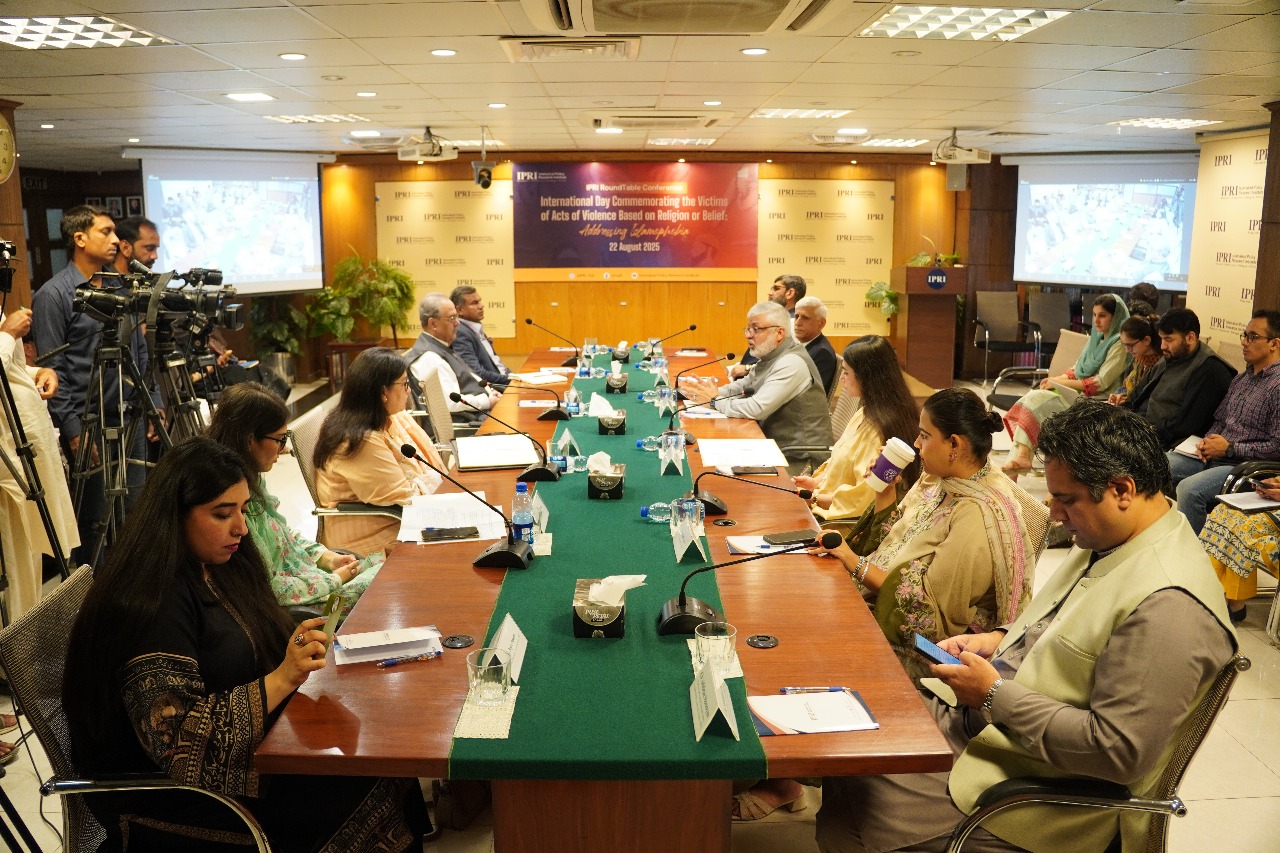– Advertisement –
ISLAMABAD, Aug 22 (APP):Speakers at a round table conference on Friday urged the international community, particularly the Muslim world, to take concrete legal, diplomatic and policy measures to counter the rising trend of Islamophobia across the globe.
The event, titled “The International Day Commemorating the Victims of Acts of Violence based on Religion or Belief: Addressing Islamophobia”, was organized by the Islamabad Policy Research Institute (IPRI), said a press release.
Pakistan’s Permanent Representative to the United Nations, Ambassador Munir Akram, in his remarks, called on the Organisation of Islamic Cooperation (OIC) to formally define Islamophobia and pursue legal remedies at international forums. He also stressed the need for Class Act Suits against perpetrators capitalising on extra-territoriality and universal jurisdiction through an institutionalised support of the OIC.
Amb Akram said that Pakistan has led from the front at international forums and its initiative to mark a day against Islamophobia was initially opposed vehemently by the world community.
Yet, he said that it was a huge success that March 15 was marked as International Day against Islamophobia and the resolution was carried unanimously. He also called for protecting the Islamic heritage sites in India and elsewhere and to provide legal assistance to victims of Islamophobia through the OIC forum.
IPRI President Lt Gen. (retd) Majid Ehsan called for a thorough discourse on the soaring phenomenon of Islamophobia, and said that it has led to marginalisation and a sense of otherness globally.
He regretted that Islam has not been understood in its true essence, and there is an industry that is thriving on Islamophobia to the benefit of those who are crafting this narrative.
Brig Dr Raashid Wali Janjua, Director Research IPRI, expressed his displeasure at the term “Islamophobia,” and regretted that Muslims too have come to accept it as fait accompli. He said, while Islam is a religion of peace, then as to why there is a phobia associated with it? He coined the term ‘anti-Abraham-ism” to address it more comprehensively and logically.
Chairman Institute of Policy Studies, Khalid Rehman, said that the quality of governance at local or international levels has also contributed to the spread of Islamophobia. He also underscored the need for a debate in the realms of public policy discourse as to why this terminology and sense of otherness started in the 1990s. He pointed out that the Cold War issues were capitalism and communism, which had nothing to do with Islam. He, however, pointed out that in the 1990s, the narrative of Islamophobia began and then spread very fast in the 2000s, and it has much to do with the Afghan Jihad and the 1979 Islamic Revolution in Iran.
“We too are to be blamed for this tendency because terrorism has been the foundation of Islamophobia. But there is no set definition of terrorism and anyone can mold the definition of it as they want. It has been established through media and movies, too, where Muslims are portrayed as terrorists. Terrorism existed before 9/11, too. And it used to be a crime that required investigation in the court of law. Now that the process of definition does not exist, then the issue of investigation remains a concern,” Rehman elucidated.
Dr Sadia Zahoor, an expert in public international law, touched upon the sensitivities of Artificial Intelligence (AI) and ChatGPT, and observed that its content surprisingly is Islamophobic. She also mentioned how AI in the US military is targeting Muslim communities, especially the Palestinians. She said that globalization has amplified, and it has evolved a structured outcome from powerful actors against Islam. “Portraying Muslims as villains in video games, and the binary of otherness that has been created on the web are cases in point,” she added.
Dr Ayesha Khan of Bahria University said that the rise of Islamophobia is a very critical area and it needs to be understood with the evolving trends of globalisation. “Globalisation has contributed to prejudice and has multiplied fears. Global media has been prejudiced and has created the perfect storm for the rise and spread of Islamophobia. It started from colonialism and orientalism. Globalisation today has amplified Islamophobia. It is not neutral at all,” she explained.
The speakers also referred to a growing sense of discrimination based on religion in India, and how Muslim-phobia has become a state-centric issue. They lamented the so-called terminology and worries of Islamophobia and in the West against the fastest-growing religion, i.e., Islam. They said that the world is witnessing the worst manifestation of Islamophobia in Gaza, where more than 60,000 Muslims have been massacred, and the champions of civilization are silent spectators. Likewise, it is ironic that freedom struggles in Kashmir and Palestine are equated with Islamophobia.
It was also questioned as to what Western values are: whether it is the protests seen on the streets of Western capitals against barbarism and genocide in Gaza, or the acts of violence that elites and governments are perpetrating.
Speakers stressed the need to develop media literacy and improve ignorance at indigenous levels in Muslim societies so that the misperception of Islam can be addressed in a better way, and the menace of Islamophobia can be negated successfully.
